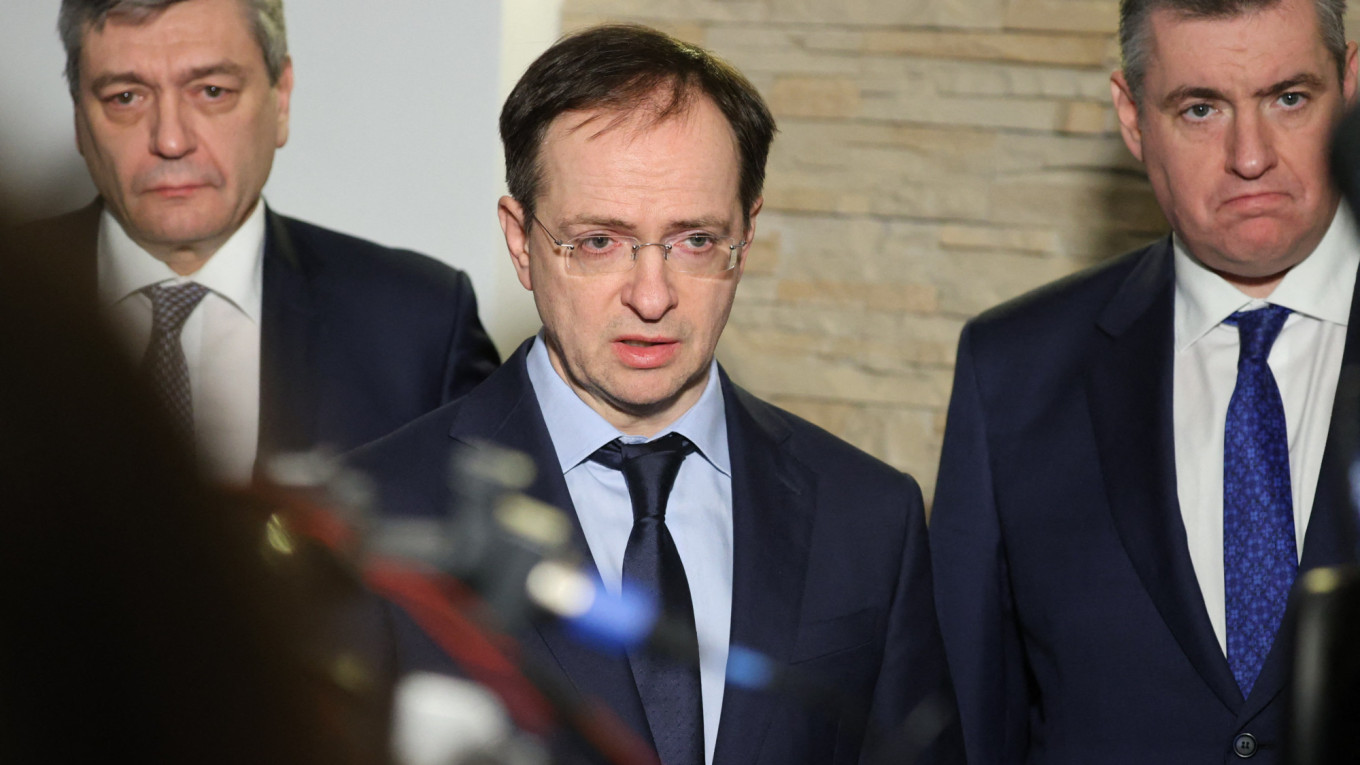President Vladimir Putin will not be traveling to Istanbul for the direct negotiations with Ukraine scheduled for Thursday, as stated in a directive released by the Kremlin late Wednesday.
Instead, Vladimir Medinsky, a presidential aide who previously oversaw the unsuccessful negotiation rounds with Ukraine in March and April of 2022, will head the Russian delegation. He will be accompanied by Deputy Foreign Minister Mikhail Galuzin, Deputy Defense Minister Alexander Fomin, and Igor Kostyukov, who leads Russia’s military intelligence agency, GRU.
The Kremlin’s directive also identifies a team of expert advisers, which includes senior officials from the Foreign and Defense Ministries, as well as from the presidential administration.
Moscow had previously been cautious in confirming its delegates for the Istanbul negotiations, which Putin publicly proposed during a surprise press conference early Sunday morning, as a response to Western-backed calls for a 30-day ceasefire in Ukraine.
Ukrainian President Volodymyr Zelensky has challenged Putin to meet with him directly during these talks, suggesting that the Russian leader’s decision to attend—or not—would indicate Moscow’s willingness to negotiate sincerely.
The Wednesday Kremlin directive did not include Putin among the listed participants, and chief spokesperson Dmitry Peskov later affirmed that the president would not be going to Turkey for the discussions.
Zelensky has stated he is willing to meet only with Putin in Turkey and will not engage with lower-ranking Russian officials. Russian sources had previously informed The Moscow Times that Putin was not planning to meet with the Ukrainian president at this stage, as he doesn’t regard Zelensky as an equal and would only agree to a meeting in the event of what they termed “public capitulation” from the Ukrainian side.
Meanwhile, a Ukrainian official, who chose to remain unnamed, told Reuters on Wednesday that Zelensky was en route to Ankara, where he also intends to meet Turkish President Recep Tayyip Erdoğan.
Following the Kremlin’s release of its official delegation list for the Istanbul talks, a White House representative revealed to Reuters that U.S. President Donald Trump, currently on a trip in the Middle East, would similarly not be attending the talks. Trump had previously mentioned that he would consider attending the negotiations if he believed it would be beneficial.
Trump’s envoy Steve Witkoff and U.S. Secretary of State Marco Rubio confirmed their plans to travel to Turkey on Friday for the Russia-Ukraine discussions, though their exact roles in the negotiations remain unclear.
If the negotiations in Istanbul proceed as planned, they would represent the first direct meeting between representatives from Russia and Ukraine since early 2022, when peace talks fell apart largely due to Russian demands that Ukraine renounce its application to join NATO and significantly decrease its military capacity.
Conversely, Ukraine has refused to acknowledge Russia’s control over the eastern regions of Luhansk and Donetsk, as well as Crimea, which was annexed by Moscow in 2014. Kyiv has also rejected demands to fund the reconstruction of war-affected areas under Russian terms.
Reporting by Reuters contributed to this story.

